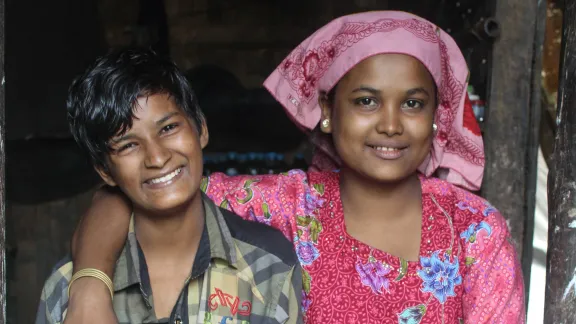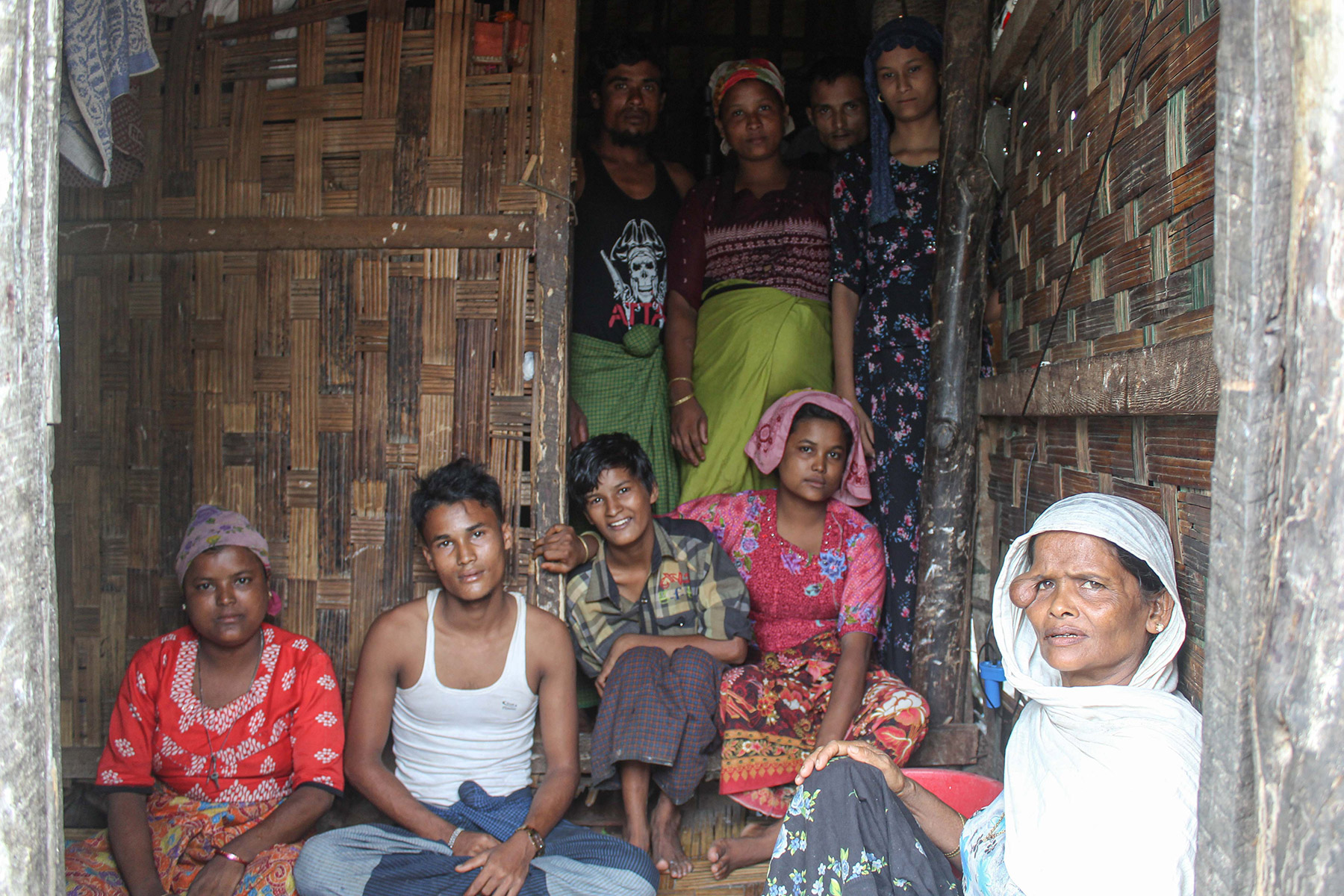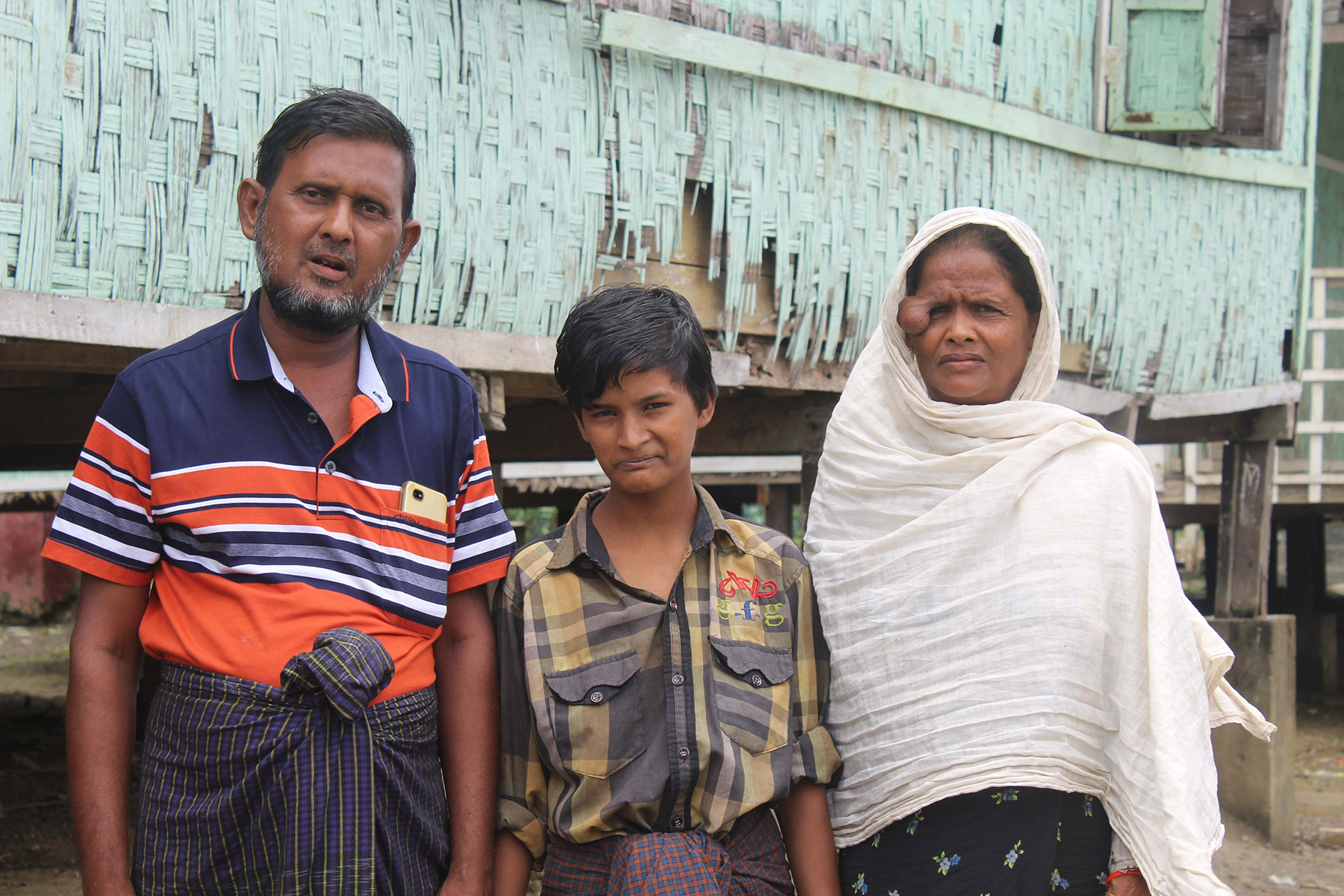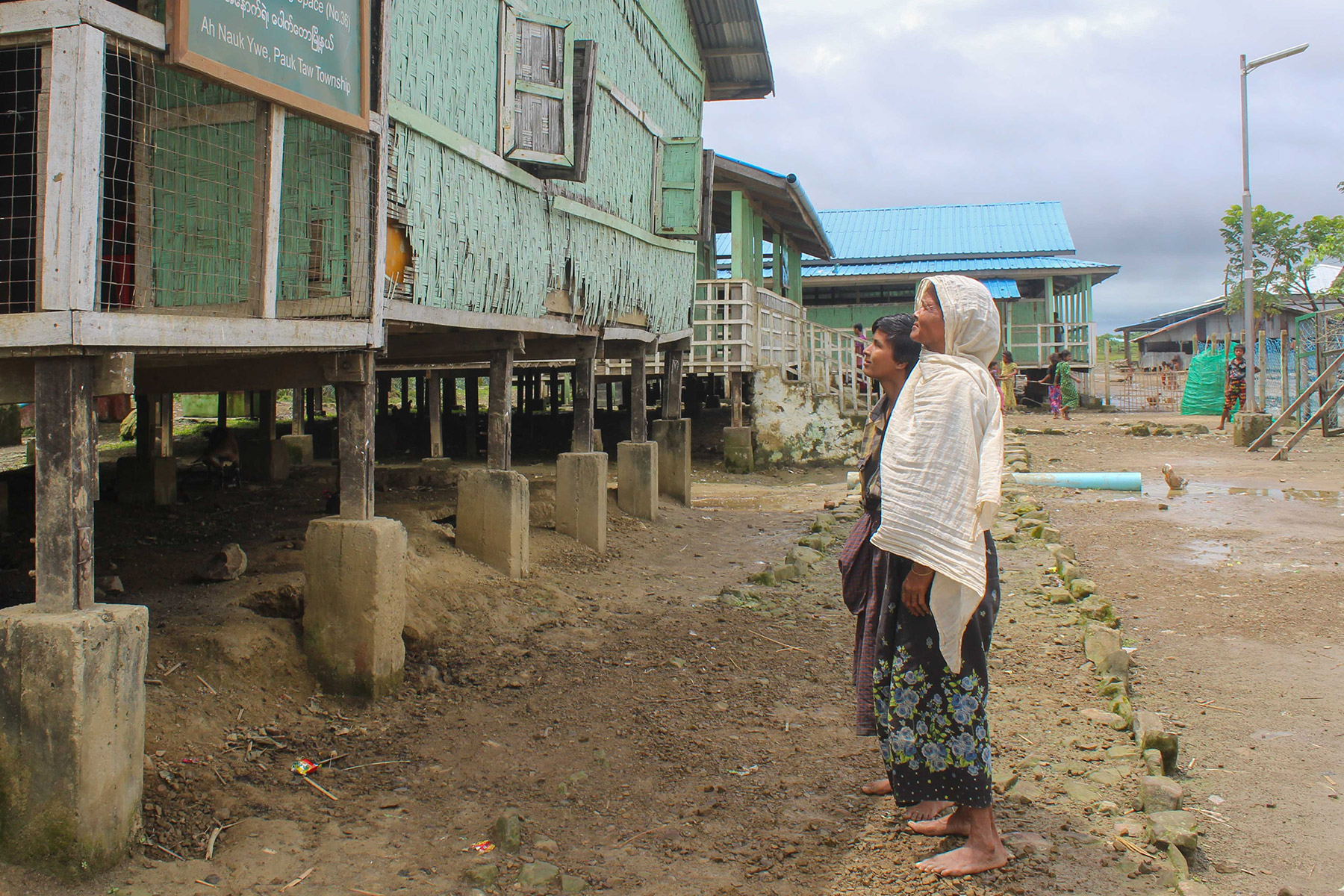
Showkat and her sister, who takes care of her most of the time. All photos: LWF/ S. Thandar
LWF project enables Rohingya children with disabilities to attend school
(LWI) – Going to school is difficult for the about 30,000 internally displaced Rohingya children in Myanmar’s Rakhine state. Even more, if the child is living with a disability: Teachers lack special training, and overcrowded classes make it hard to attend to particular needs. Two new projects by The Lutheran World Federation (LWF), working together with Humanity and Inclusion, Plan International, Save the Children, and Muslim Aid UK, aim to identify special needs for children in the camps and give them the chance to access education for the first time.
Struggling to survive
Fifteen-year-old Showkat* has never been to school. The girl cannot speak and has difficulty walking and using her hands. “We tried once in kindergarten, but the teachers couldn’t care for her as they have to watch so many children,” her mother, Arefa, says.
Showkat and Arefa are just two of over 144,000 Rohingya in Central Rakhine State who lost their homes due to violent outbreaks. Since 2013, Showkat, her parents, and seven siblings have lived in Ah Nauk Ywe camp, a temporary settlement for internally displaced people (IDPs). The family shares two rooms.
The IDP camps in Rakhine state are challenging for any child: overcrowded houses, open fires, and inadequate sanitation pose many dangers. The 30,000 children of school-going age are mostly unable to access formal education outside the camps. They attend Temporary Learning Centres (TLCs), supported by non-governmental organizations such as LWF, and staffed by volunteer teachers with no formal teaching qualifications.

Showkat (center, grey checkered shirt) and her family.
No formal education
For children with special needs, the opportunities are even more limited. The family has little assistance in caring for their child; mother and sister are the principal caregivers for the 15-year-old. Showkat can communicate with her family. She noticed how other children go to school and repeatedly asked to go. Arefa is concerned about how the girl will fare without family assistance in everyday tasks. “She wants to go to school, but I don’t know what she needs for her education.”
Yunus*, the Head Teacher of five TLC in Ah Nauk Ywe IDP camp, knows about Showkat and other students like her. “We have around fourteen students who have similar conditions,” he says.
It would be great if we had a proper classroom, together with physical assistance and mental support for them.
The teacher would like to open a class for them but does not know where to start. “We will need qualified teachers,” he says. “It would be great if we had a proper classroom, together with physical assistance and mental support for them.”

Headmaster Yunus (left), Showkat and Arefa. The teacher also advocates for inclusive education.
Quality education for all
A project supported by Australian Lutheran World Service, with funds from the Australian Humanitarian Partnership (AHP) will provide exactly that. It will help teachers and communities identify children with special needs and map the challenges these children face when accessing education. They will then plan how to overcome those challenges.
“These could include physical improvements to TLC structures, the provision of assistive devices, and training for teachers on how to identify and support children with disabilities who are already in their classrooms,” says Phyu Zin Thet Naing, LWF Education Officer in Rakhine.
The project also features an accelerated learning program of informal primary and middle school education for over-age students like Showkat. The program, which allows older students to proceed faster with the curriculum, will eventually integrate them into mainstream schooling.

Showkat and her mother in front of the camp’s primary school. Currently, even those Temporary Learning Spaces are closed because of COVID-19
Showkat and the other students will have to wait for their first day in class though. Due to the COVID-19 pandemic, all schools in Rakhine State are closed. To avoid losing time, LWF is working to adapt home-based learning materials produced by the Myanmar Ministry of Education to make them more inclusive for students with disabilities.
For Showkat and her family, these projects will make a big difference. “The new projects aim to ensure that children affected by conflict in Central Rakhine State receive quality, inclusive, safe, and protective education that is supported by communities and governments,” says Jessica Gregson, LWF Education Coordinator in Rakhine.
“We hope that the development of home-based learning materials for COVID-19 will provide an opportunity for out-of-school children, including those with disabilities, to engage with education for the first time, possibly offering a route into formal learning”, Gregson adds.
The AHP project started in June 2020 and runs for 30 months. LWF is implementing it, together with Save the Children and Plan International. These three organizations are responsible for the provision of education in IDP camps in Central Rakhine State, with support from Humanity and Inclusion (HI), and input from Muslim Aid-UK.
The MHF project started in January 2021 and runs for 12 months. It is being implemented by LWF and Humanity and Inclusion (HI).


